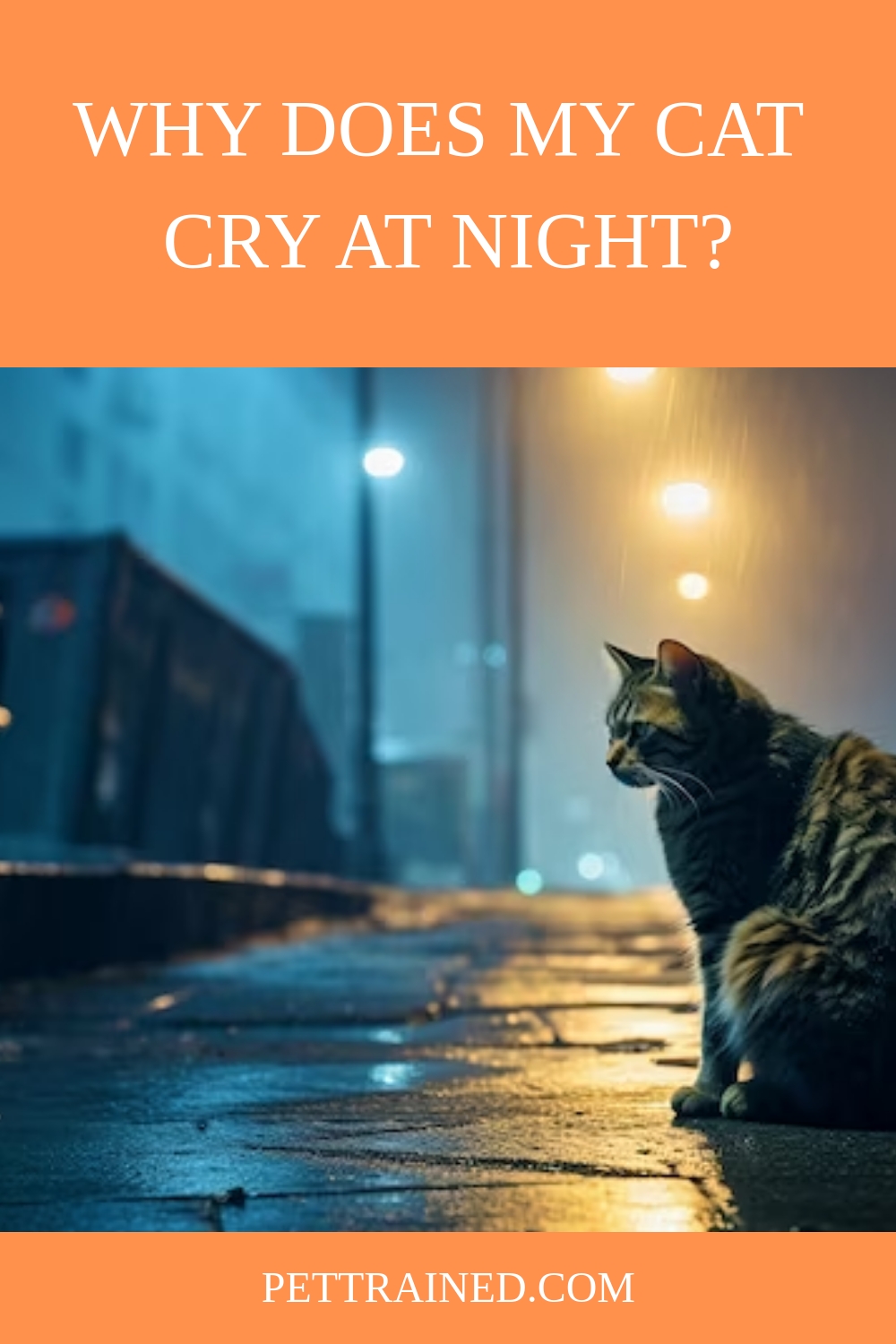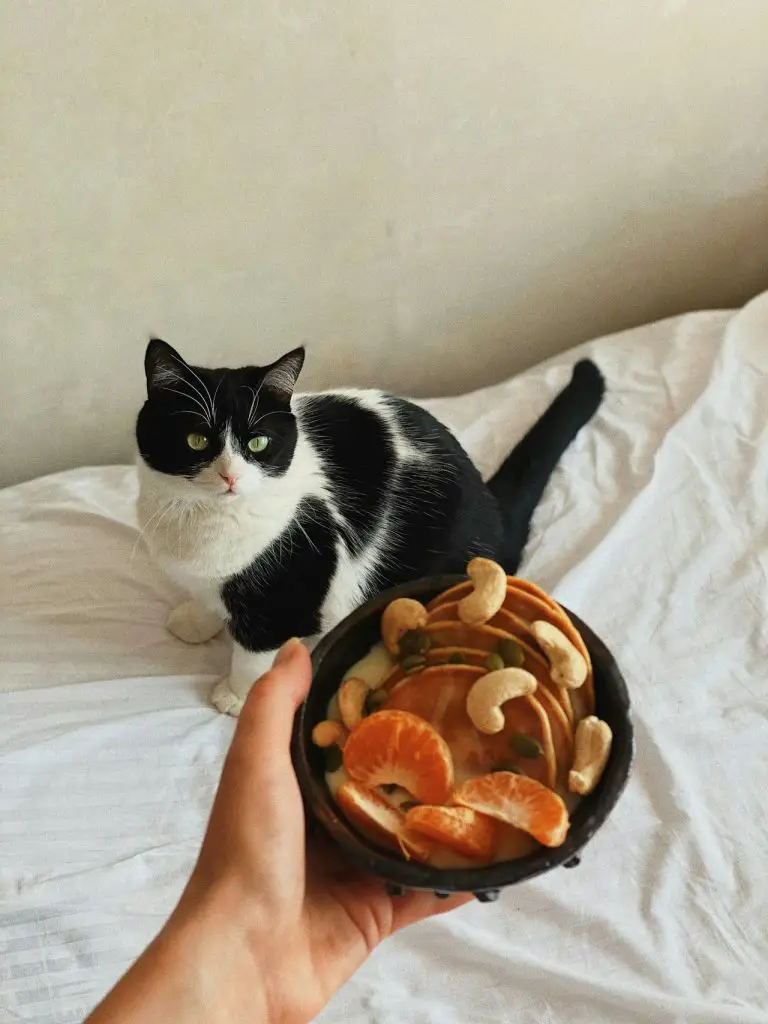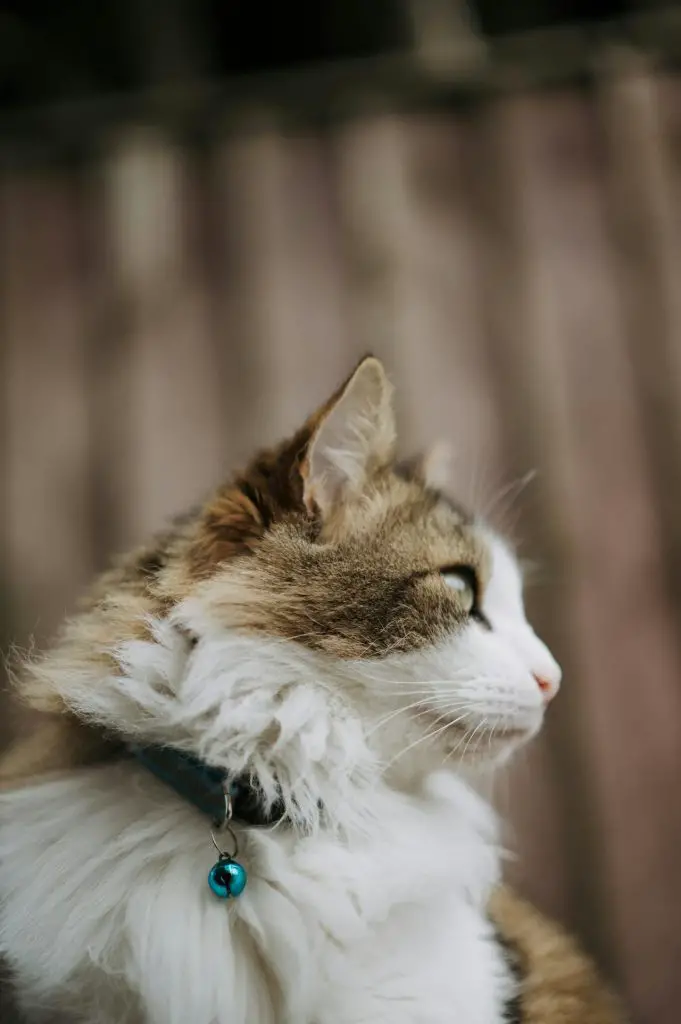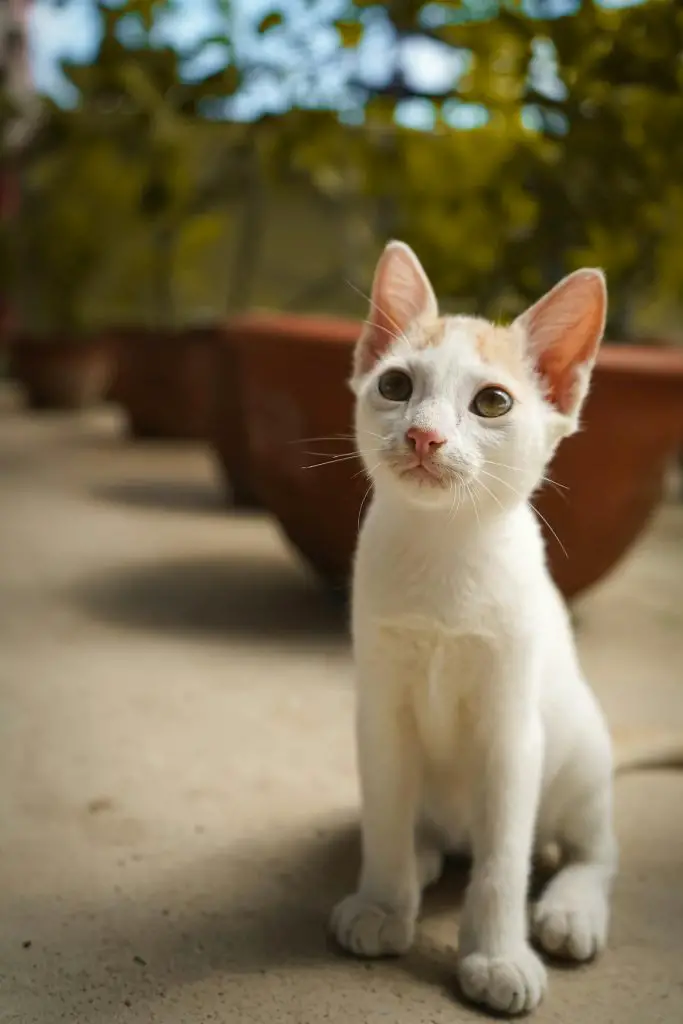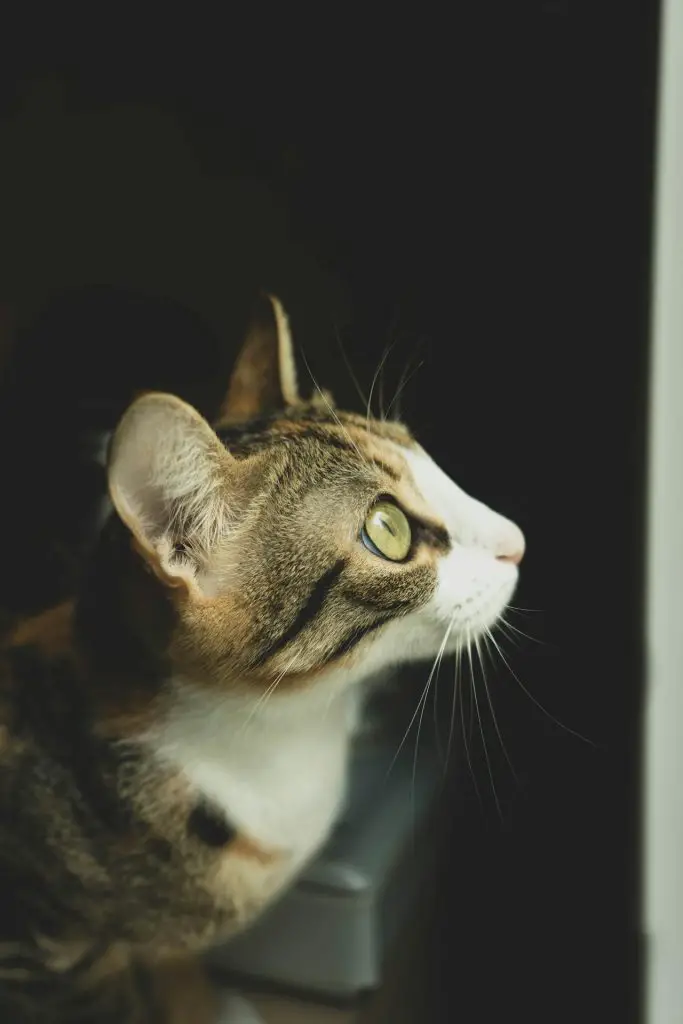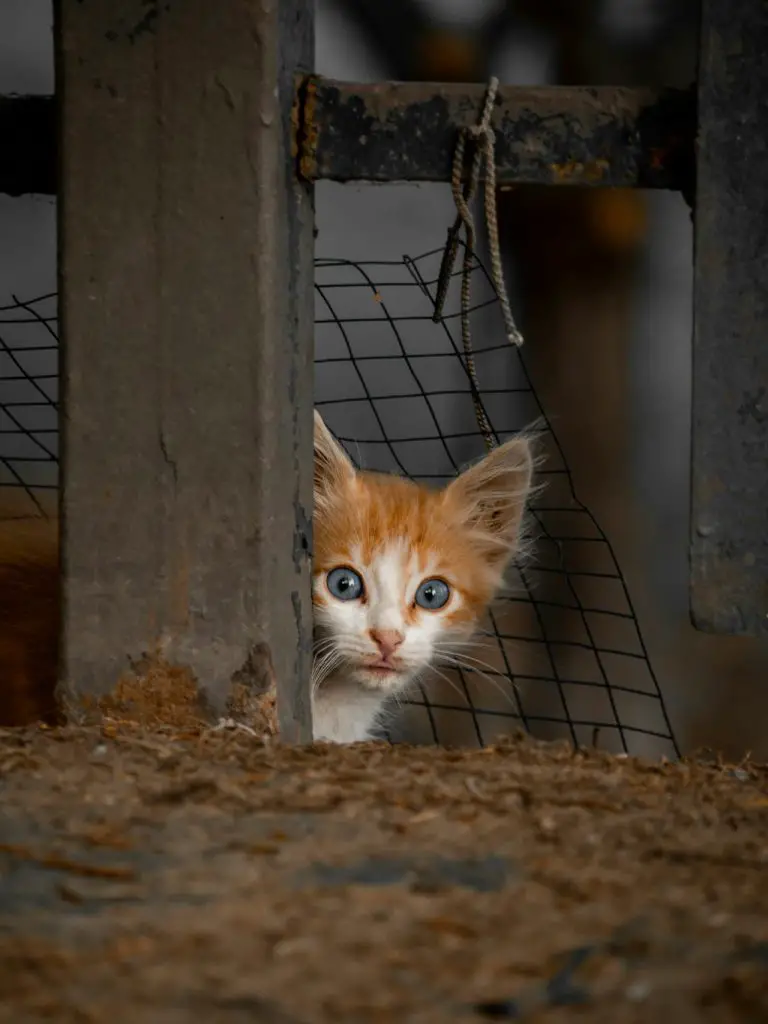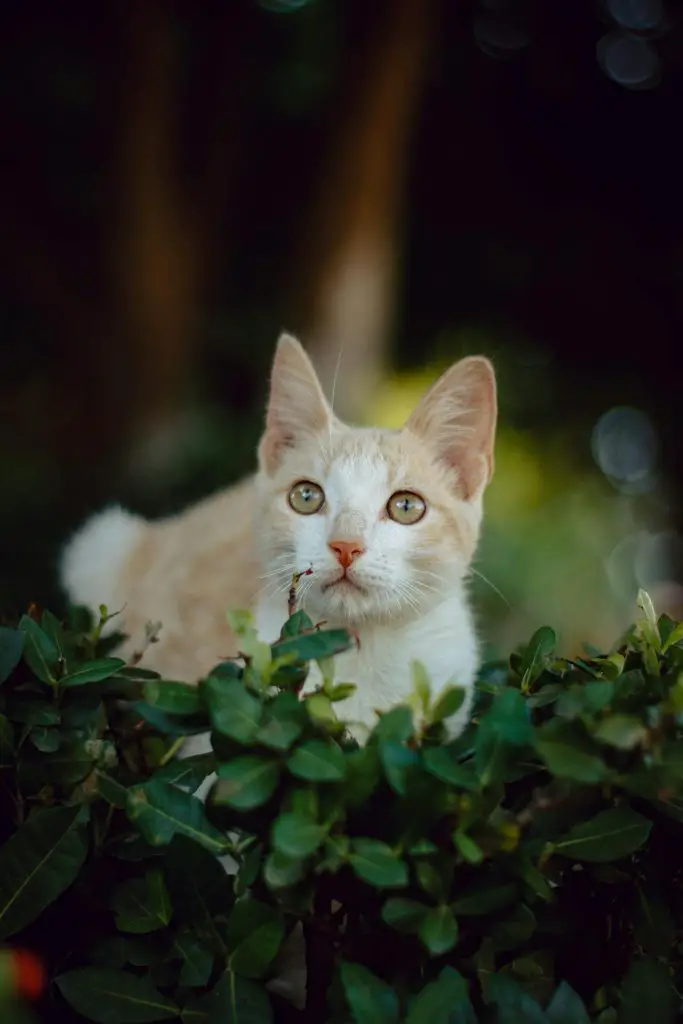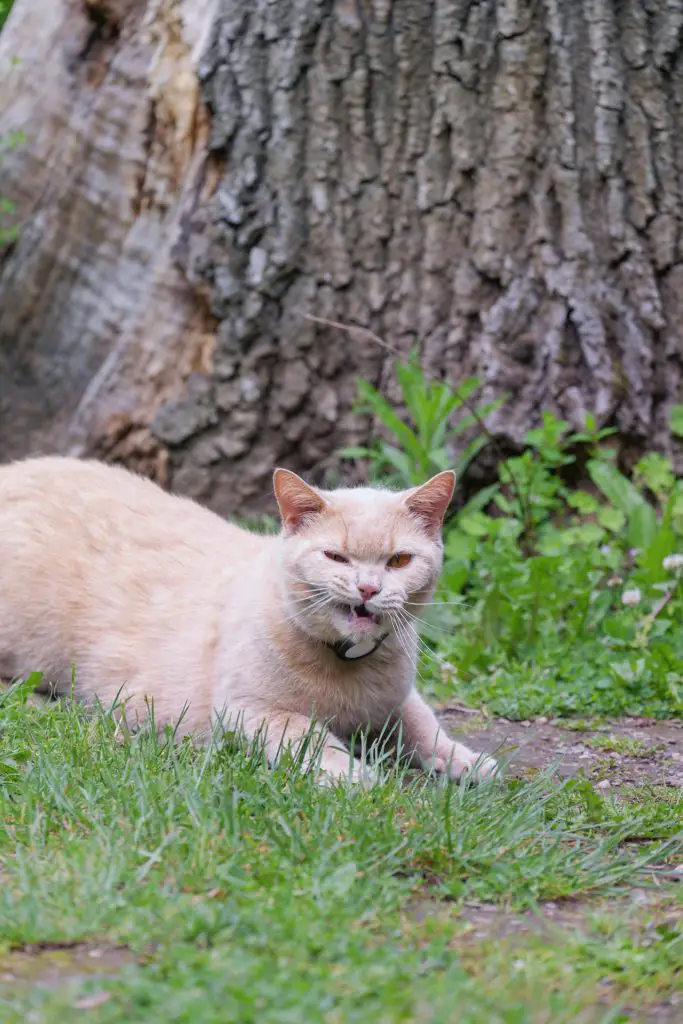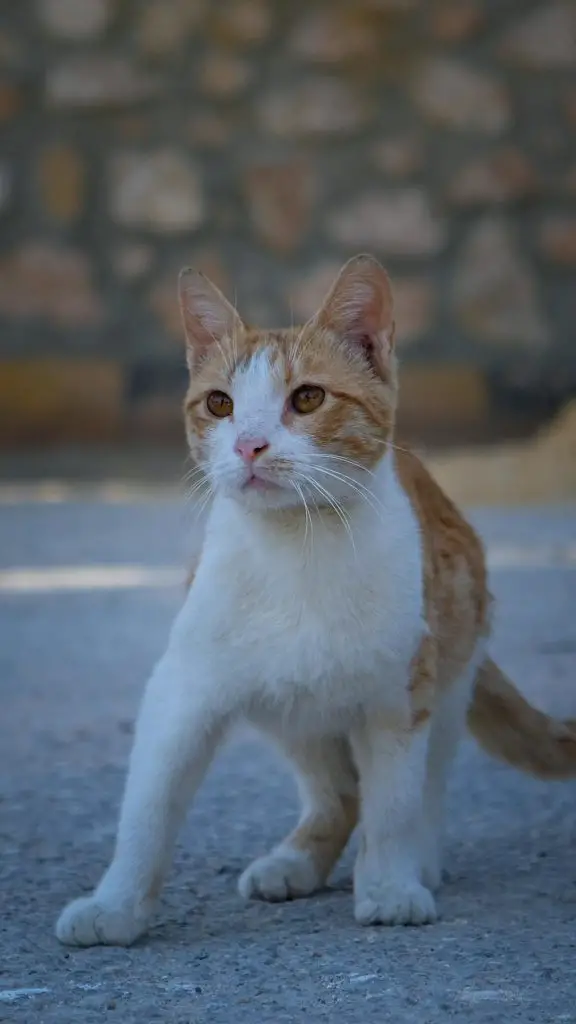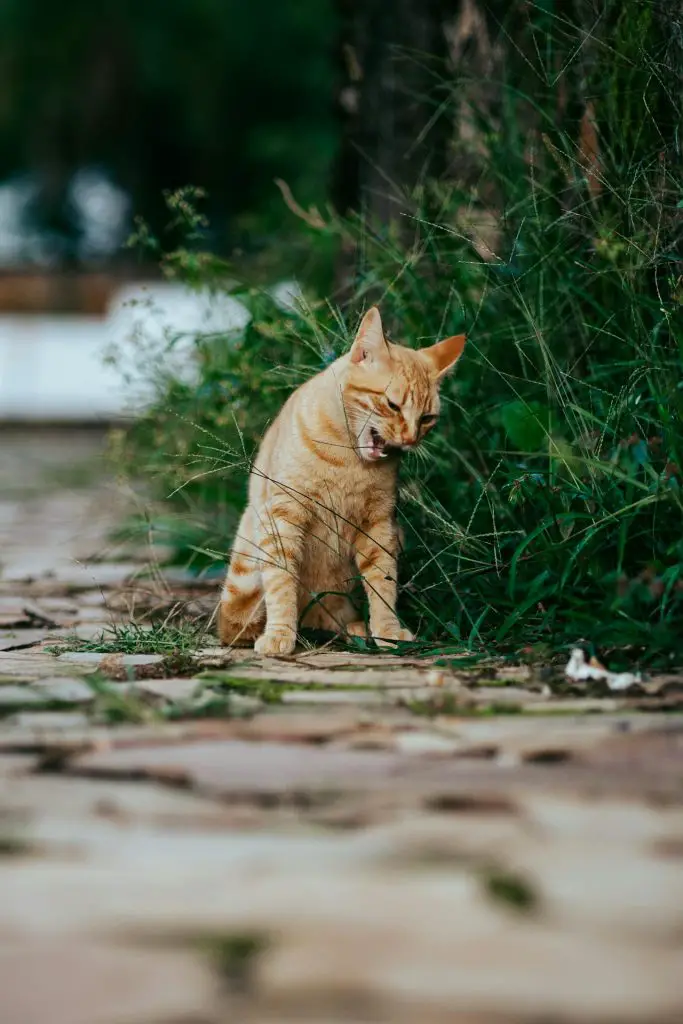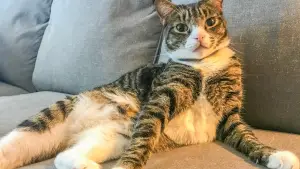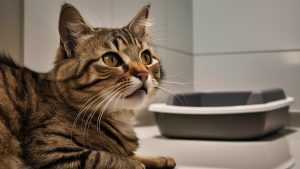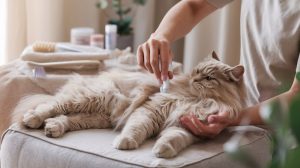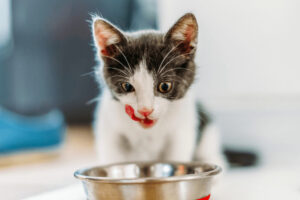
Your cat’s nighttime crying can stem from various causes. Medical issues like hyperthyroidism or cognitive dysfunction may be behind it. Hunger, thirst, or a desire for attention could also trigger these vocalizations. Territorial instincts and age-related changes can contribute to nocturnal restlessness. Environmental factors, such as outside noises or temperature changes, might disturb your cat’s sleep. In unaltered cats, mating calls can become particularly loud at night. It is crucial to observe your cat’s behavior and consult a veterinarian to determine the specific reason. Understanding these potential causes will help you address your feline friend’s nighttime cries effectively.
Table of Contents
Key Takeaways
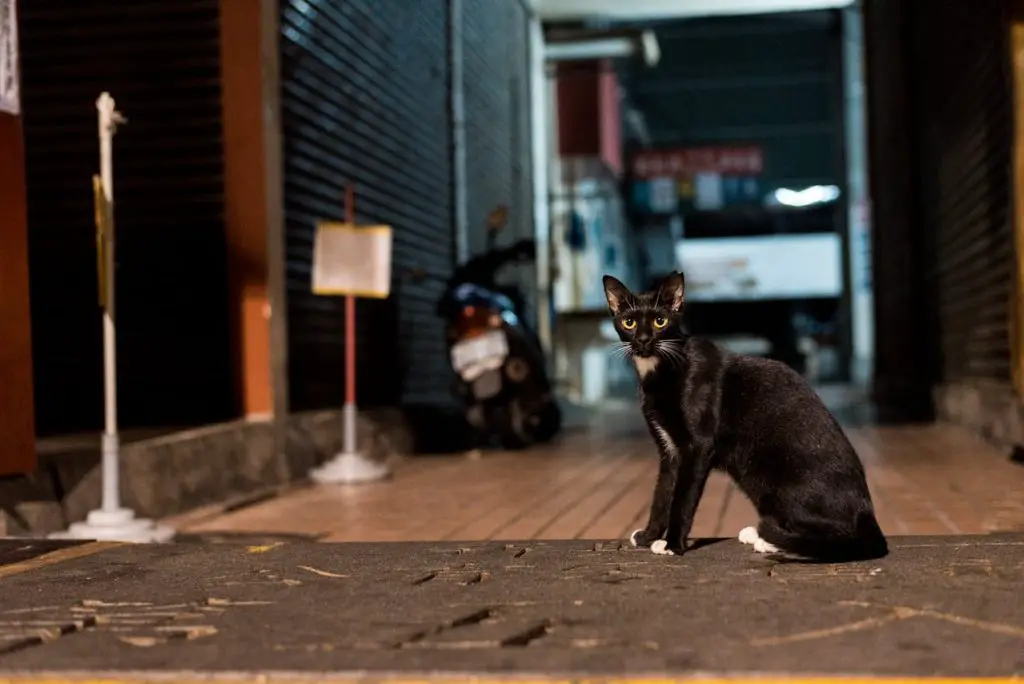
- Medical issues like hyperthyroidism, cognitive dysfunction, or arthritis can cause nighttime crying in cats.
- Hunger or thirst may trigger nocturnal vocalizations, especially in crepuscular cats with increased nighttime activity.
- Loneliness, attention-seeking behavior, or separation anxiety can lead to excessive nighttime crying.
- Territorial instincts and responses to environmental factors like noises or light pollution may cause nighttime vocalizations.
Medical Causes
In light of your cat’s nighttime crying, it’s vital to first rule out potential medical causes that could be triggering this behavior.
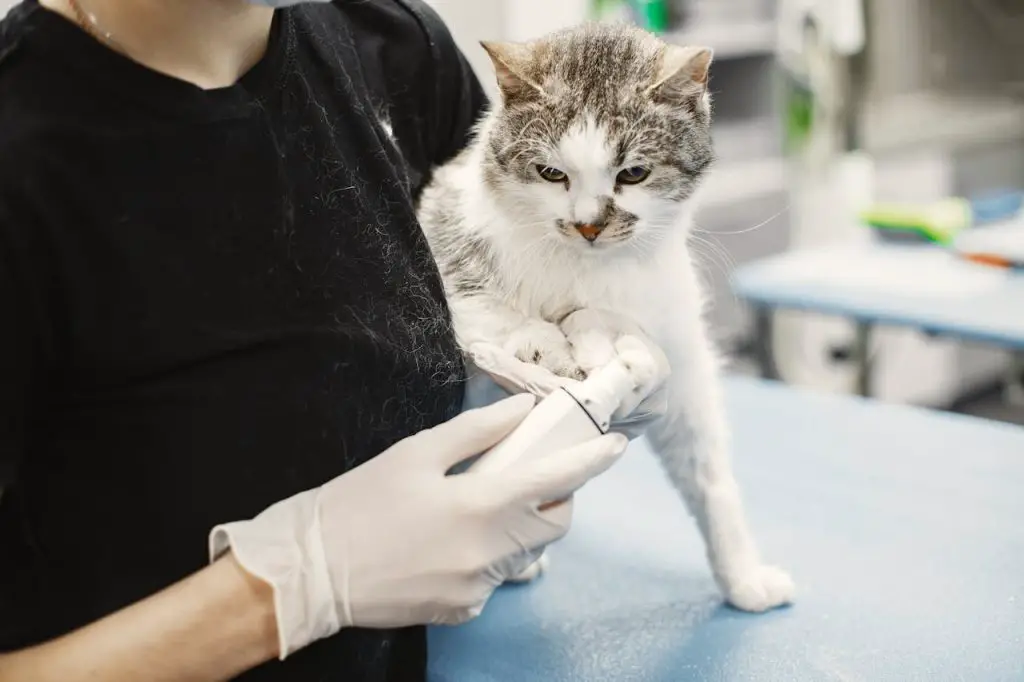
Feline health issues can often manifest as unusual nighttime behaviors, including excessive vocalization.
Common medical causes include hyperthyroidism, which can lead to increased activity and restlessness, especially during nighttime hours.
Cognitive dysfunction syndrome, similar to dementia in humans, may also cause confusion and disorientation, resulting in nighttime crying.
This post contains affiliate links. However all the information provided on this site are my own honest opinions. See more in Disclaimer.
Pain or discomfort from conditions such as arthritis, dental problems, or urinary tract infections can also prompt your cat to vocalize more frequently at night.
Additionally, sensory changes, like declining vision or hearing, might contribute to increased anxiety and vocalization during darker hours.
Hypertension, often associated with other underlying health issues, can cause restlessness and nighttime activity.
It is vital to consult with your veterinarian if you notice persistent nighttime crying. They can perform a thorough examination and run necessary tests to identify any underlying medical conditions.
Addressing these health concerns promptly can’t only alleviate your cat’s discomfort but also potentially resolve the nighttime crying issue.
Hunger and Thirst
While medical issues can contribute to nighttime crying, your cat’s vocalizations might also stem from basic physiological needs like hunger or thirst.
Cats are crepuscular animals, meaning they’re most active during dawn and dusk. This natural rhythm can lead to increased appetite during nighttime hours, prompting your feline friend to vocalize for food.
Consider your cat’s feeding schedule and food preferences. If you’re feeding your cat once or twice a day, they may be experiencing hunger pangs at night.
Adjusting their meal times or introducing a small evening meal might help alleviate nighttime crying. Additionally, some cats prefer to graze throughout the day, so an automatic feeder could provide consistent access to food.
Hydration habits also play a vital role in your cat’s nighttime behavior. Make certain fresh water is always available, as thirst can drive your cat to vocalize. Some cats prefer running water, so a pet fountain might encourage better hydration.
If you notice increased thirst and vocalization, it’s important to consult your veterinarian, as this could indicate an underlying health issue. By addressing your cat’s hunger and thirst needs, you may greatly reduce nighttime crying.
Loneliness and Attention-Seeking Behavior
If your cat cries at night, it may be experiencing separation anxiety or seeking attention.
Look for signs such as excessive vocalization, restlessness, or destructive behavior when you’re not around.
You can address this issue by providing more daytime interaction, creating a comforting nighttime environment, and gradually adjusting your cat’s routine to reduce its neediness after dark.
Separation Anxiety Signs
Cats exhibiting separation anxiety often display distinct signs that you’ll need to recognize, including excessive vocalization at night.
This cat behavior can manifest as persistent meowing, yowling, or crying when you’re not around or during nighttime hours.
You might notice your feline friend becoming more clingy, following you from room to room, or showing distress when you prepare to leave the house.
Other indicators of separation anxiety include destructive behavior, such as scratching furniture or door frames, especially near exits.
Your cat may also exhibit excessive grooming, leading to hair loss or skin irritation. Some cats might resort to inappropriate elimination outside the litter box as a stress response.
Nighttime anxiety can cause restlessness, pacing, and difficulty settling down to sleep.
You may observe changes in your cat’s eating habits, either increased appetite or loss of interest in food. Physical symptoms like vomiting or diarrhea can also occur.
It’s vital to monitor these signs and consult with your veterinarian to rule out any underlying medical conditions and develop a tailored plan to address your cat’s separation anxiety.
Alleviating Nighttime Neediness
To alleviate your cat’s nighttime neediness, you’ll need to implement strategies that address both loneliness and attention-seeking behaviors.
Start by establishing consistent nighttime routines that provide comfort and security for your feline companion. Create a cozy sleeping area with familiar bedding and toys, and consider using a pheromone diffuser to promote calmness.
Increase daytime interaction and playtime to tire your cat out before bedtime. Use interactive toys and puzzle feeders to stimulate their mind and body.
Gradually adjust your cat’s feeding schedule, offering a small meal before bed to satisfy hunger and promote sleep.
Implement comforting strategies such as leaving soft music or white noise playing throughout the night. Consider providing a cat tree or perch near a window, allowing your pet to observe nocturnal activities outside.
If your cat continues to cry, resist the urge to respond immediately, as this may reinforce the behavior. Instead, wait for a moment of quiet before offering attention.
For persistent issues, consult your veterinarian to rule out underlying health problems and discuss potential solutions, such as anxiety medication or behavioral therapy.
Territorial Instincts
Your feline’s nighttime vocalizations may stem from deeply ingrained territorial behaviors, prompting them to assert dominance over their perceived domain.
Cats are naturally territorial creatures, and their instincts don’t simply switch off when the sun goes down.
In fact, many cats become more active during twilight hours, engaging in what can be described as nighttime patrols.
These nocturnal rounds often involve your cat checking the boundaries of their territory, which in a domestic setting, typically encompasses your entire home.
As they move about, they may vocalize to ward off potential intruders or to communicate with other cats in the vicinity.
This behavior can be particularly pronounced if you live in a multi-cat household or if there are outdoor cats in your neighborhood.
Territorial disputes can also trigger nighttime crying. If your cat senses another animal encroaching on their space, even from outside, they may become vocal as a warning or call for assistance.
Understanding these instinctual behaviors can help you better address your cat’s nighttime crying and potentially find ways to mitigate it.
Age-Related Changes
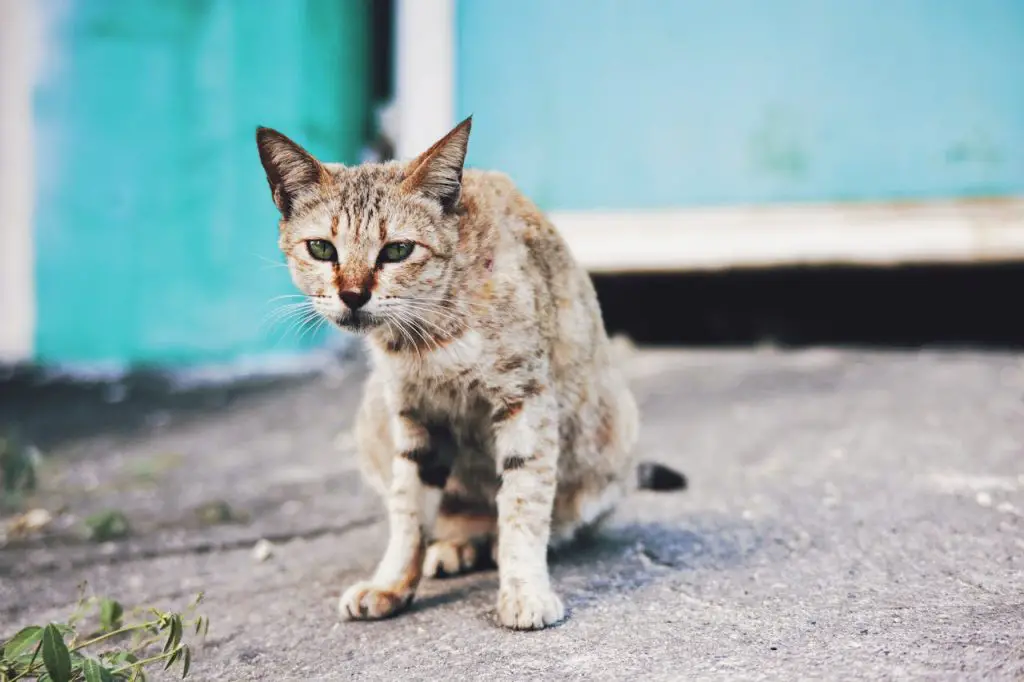
Aging can greatly impact your cat’s nighttime behavior, often leading to increased vocalization as they experience physical and cognitive changes.
As your feline companion enters their senior years, you may notice them becoming more vocal during nighttime hours. This increase in crying or meowing can be attributed to various age-related factors.
The aging process affects cats in numerous ways, including sensory decline and cognitive changes. Here’s a breakdown of common age-related issues that may cause nighttime vocalization:
| Physical Changes | Cognitive Changes |
|---|---|
| Vision loss | Disorientation |
| Hearing loss | Confusion |
| Joint pain | Memory loss |
| Thyroid issues | Anxiety |
| Kidney disease | Sleep-wake changes |
These changes can lead to discomfort, anxiety, or confusion, prompting your cat to vocalize more frequently at night.
Sensory decline, such as deteriorating vision or hearing, may cause your cat to feel more vulnerable or disoriented in the dark.
Additionally, cognitive dysfunction syndrome, similar to dementia in humans, can alter your cat’s sleep-wake cycle and increase nighttime activity.
If you notice a sudden increase in nighttime crying, it is crucial to consult your veterinarian to rule out underlying health issues and discuss appropriate management strategies for your aging feline friend.
Environmental Factors
While age-related changes can contribute to nighttime crying, environmental factors in your cat’s surroundings also play a significant role in their nocturnal vocalizations.
Your home’s atmosphere and external stimuli can trigger your cat’s nighttime behavior. Here are some key environmental factors to reflect on:
- Nighttime noises (e.g., traffic, wildlife)
- Light pollution from street lamps or electronics
- Changes in household routine
- Presence of other pets or animals outside
Cats have highly sensitive hearing and can be easily disturbed by nighttime noises, both inside and outside your home. These sounds may cause anxiety or curiosity, leading to vocalization.
Light pollution can disrupt your cat’s natural sleep-wake cycle, confusing their internal clock and potentially causing restlessness at night.
Changes in your household routine, such as altered work schedules or new family members, can also affect your cat’s behavior.
The presence of other animals, whether pets inside or creatures outside, may trigger territorial responses or excitement.
Additionally, temperature fluctuations can cause discomfort, prompting your cat to vocalize for attention or relief.
By identifying and addressing these environmental factors, you can help reduce your cat’s nighttime crying and improve both your sleep quality.
Mating Calls
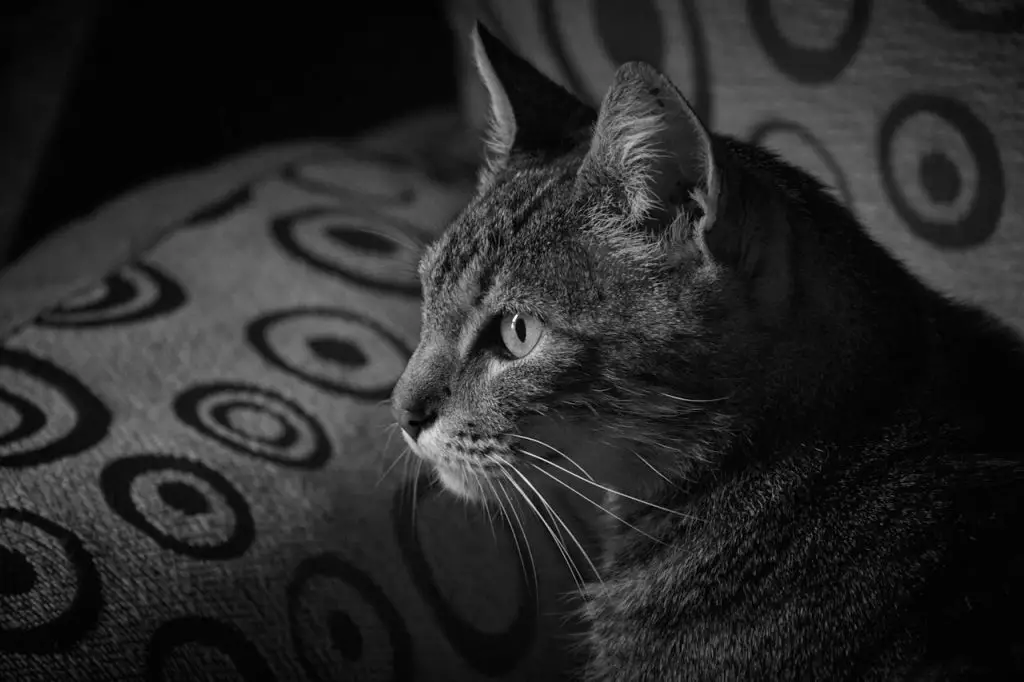
Your cat’s nocturnal cries may be mating calls triggered by hormonal urges.
During certain seasons, cats become more vocal as they attempt to attract potential mates in the vicinity.
These mating behaviors can intensify at night when cats are naturally more active, leading to increased vocalization as they seek out partners.
Hormonal Urges Trigger Vocalization
During mating season, hormonal surges can drive unaltered cats to vocalize loudly, often at night. These hormonal fluctuations trigger intense feline vocalization, particularly in female cats in heat and male cats responding to these calls.
The cries, yowls, and meows are part of a complex mating ritual designed to attract potential mates.
You’ll notice these behaviors are more pronounced in cats that haven’t been spayed or neutered. The hormonal urges can lead to:
- Increased volume and frequency of vocalizations
- Restlessness and pacing
- Attempts to escape or roam
- Marking territory with urine
These hormonal-driven vocalizations can be disruptive to both you and your cat. The sounds may be loud, persistent, and occur at inconvenient times, often peaking during the night when cats are naturally more active.
This behavior is a biological imperative for unaltered cats, driven by the instinct to reproduce.
If you’re experiencing this issue regularly, consider discussing spaying or neutering options with your veterinarian.
These procedures can greatly reduce hormone-driven vocalizations and other mating behaviors, leading to a quieter and more content feline companion.
Seeking Potential Mates Nearby
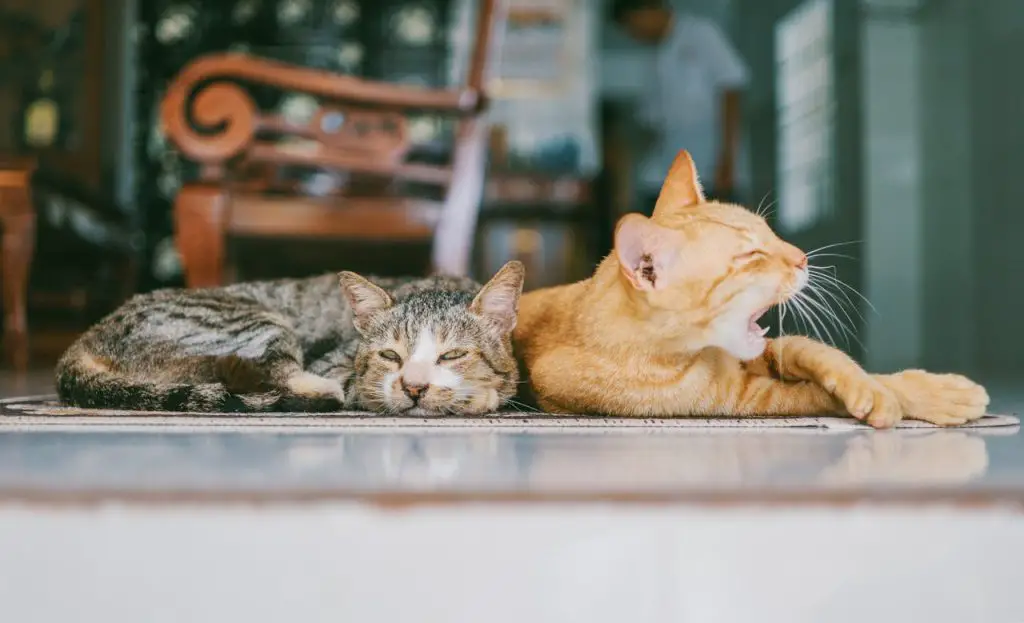
Unaltered cats emit distinctive mating calls, often at night, to attract potential mates in the vicinity. These vocalizations are a vital part of feline communication during breeding seasons.
Female cats in heat, also known as queens, produce loud, prolonged yowls that can be heard from considerable distances. Male cats, or tomcats, respond with their own unique vocalizations, creating a cacophony of feline courtship.
These mating rituals are driven by hormonal changes and the instinctive desire to reproduce. Your cat’s cries may intensify if they sense the presence of other unaltered cats in the area.
The volume and frequency of these calls can be particularly disruptive during the night when cats are naturally more active.
To address this behavior, you might consider spaying or neutering your cat. This surgical procedure not only eliminates the urge to seek mates but also offers health benefits and helps control the feline population.
If you’re not ready to alter your cat, you can try to minimize their exposure to outdoor stimuli by keeping windows closed and providing engaging nighttime activities to distract them from their mating instincts.
Seasonal Mating Behaviors
Seasonal changes considerably influence feline mating behaviors, often leading to increased nocturnal vocalizations. Your cat’s instincts are closely tied to the changing seasons, particularly during spring and fall when daylight hours shift.
These periods typically trigger heightened feline mating rituals, including more frequent and intense nighttime crying.
During peak mating seasons, you might notice your cat exhibiting the following behaviors:
- Increased restlessness and activity at night
- Louder and more persistent vocalizations
- Attempts to escape or access the outdoors
- Marking territory more frequently
These seasonal mating behaviors are driven by your cat’s biological clock and hormonal changes. Unaltered cats are especially prone to these instinctual responses.
The urge to find a mate becomes more pressing, leading to amplified nighttime cries that can sound distressed or urgent.
It’s important to understand that these vocalizations are a natural part of feline instincts and not necessarily a sign of discomfort or illness.
However, if you’re concerned about excessive crying or want to minimize these behaviors, consulting with your veterinarian about spaying or neutering options can be helpful in managing seasonal mating-related vocalizations.
Frequent Questions and Answers
You can train your cat to stop nighttime crying. Establish a consistent nighttime routine and use behavioral reinforcement. Provide stimulation during the day, offer a pre-bedtime play session, and ignore attention-seeking cries to discourage the behavior.
You shouldn’t ignore your cat’s nighttime crying. Establish a consistent nighttime routine to address their emotional needs. Assess potential underlying issues and consult a veterinarian if the behavior persists. Ignoring may exacerbate the problem.
You shouldn’t ignore your cat’s nighttime crying. Establish a consistent nighttime routine to address their emotional needs. Assess potential underlying issues and consult a veterinarian if the behavior persists. Ignoring may exacerbate the problem.
Yes, certain cat breeds have tendencies towards increased nighttime vocalization. Siamese, Sphynx, and Burmese cats are known for their more vocal patterns. You’ll notice these breeds often exhibit louder and more frequent nighttime meowing behaviors.
Like a worried parent, you’re keen to understand your cat’s cries. Normal behavior includes occasional meowing, while persistent, unusual vocalizations may indicate medical issues. Monitor pitch, frequency, and accompanying symptoms to differentiate between typical and concerning nighttime calls.
White noise’s effectiveness in reducing nighttime cat crying varies. Some cats may find it soothing, while others might be sensitive to the sound. You’ll need to experiment to determine if it helps your specific cat’s behavior.
